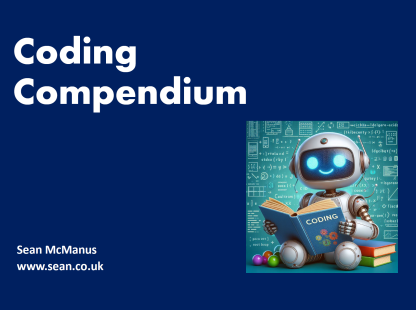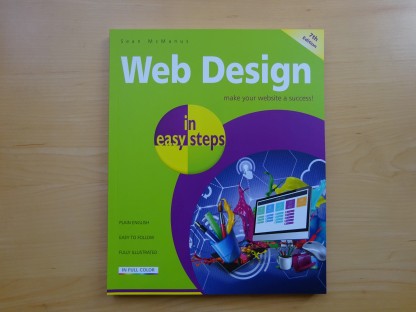
Coding Compendium
A free 100-page ebook collecting my projects and tutorials for Raspberry Pi, micro:bit, Scratch and Python. Simply join my newsletter to download it.
Making Music: Jan/Feb 2000
Despite all the portable MP3 players available, the mass market isn't yet ready for the inconvenience of connecting up the unit to reload when one selection becomes boring. But a new multimedia card player shows an innovative path forward, says Sean McManus.
Former Rolling Stone Bill Wyman has released his own branded MP3 player, and made an attack on the hassle associated with loading music into portable MP3 devices. Because the player substitutes multimedia cards for on-board memory, music can be bought on a time-saving physical format as well as being downloaded from the web into blank cards. "You don't have to go near the internet to get the music," says Grenville Lee, CEO and founder of the company behind the technology, MP3 Ltd. "It's like a self-playing album. It comes in a case like a double CD jewel case and has the same artwork."
The unit has two slots for cards, which can be read only or read/write. Two 8MB cards are being supplied, carrying three songs between them from the forthcoming live EP by Bill Wyman's Rhythm Kings. The tracks are 'Stagerlee', 'Let the Good Times Roll' and 'Tear it Up'. Although this experimental release uses just three songs, the player has a maximum capacity of 60 minutes of CD-quality music or several hours of spoken word material on two 32MB cards. The unit is about the size of a matchbox and weighs around 30g.
But it doesn't come cheap. Although the player significantly undercuts other MP3 players at just £58.50, it costs an additional £50 for a Multimedia (MMC) flashcard reader/writer to enable new material to be written to the cards. The cards themselves carry a hefty price tag, costing £75 for a 32MB rewritable card. "The flashcards are expensive," concedes Lee, "Siemens and Sandisk hold a joint patent on the technology. If this is to go mass market, there will have to be a big price drop." Cost is the only barrier to using higher capacity cards, including the shortly to be released 1 Gigabyte unit. The read-only Record on Silicon (ROS) cards are cheaper, making it feasible to release whole albums for a £20 shelf price.
Each card has a serial number, so downloaded music can be tracked to one card. Customers download the track for free, but pay to unwrap and hear it. The www.mp3.ltd.uk website offers a 29 second streaming preview of the music. Payment is by credit card over the internet. When the payment is made, the track unlocks so that it only plays on the same device. If copied to another device, the file seals itself again until another payment is made. The encryption technology is also used for licensing industrial design package Autocad and is made by C-Dilla and distributed by Phocis. Cracking the protection on one track would not make any others more vulnerable and with a track price of about a pound, it is unlikely that many would bother trying.
The artists benefit from Digital Rights Management software that enables them to track their earnings by the hour. Different wrappers can be created for the same track, so that sales through different channels can be tracked through the rights management system. A separately-wrapped Bill Wyman track has been included on a CD Rom being sold through Wal Mart in the US. Bill Wyman stresses the importance of 'transparent financial control' to the technology. "Many major artists have been holding back from releasing their material on the internet for fear of losing control," he says. "We've been aware for some time that digital technologies and downloading of MP3 files represent a seismic event for the music industry. Up to now it's been hard to see how we could release our music in the new format and at the same time protect ourselves from piracy."
The back office software is also winning support from industry bodies. "The MCPS like it," says Lee. "They can see exactly how much they are due. The British Academy of Songwriters and Composers like it. They have 36,000 members and their problem is getting published. They will be creating a site for downloading music." The company's royalty for use of the technology is negotiable.
In a few months, Grenville Lee estimates that the company has sold hundreds of thousands of players across Europe. At the moment, the bottleneck is the limited availability and high cost of flashcards.
© Sean McManus. All rights reserved.
Visit www.sean.co.uk for free chapters from Sean's coding books (including Mission Python, Scratch Programming in Easy Steps and Coder Academy) and more!

A free 100-page ebook collecting my projects and tutorials for Raspberry Pi, micro:bit, Scratch and Python. Simply join my newsletter to download it.

Web Design in Easy Steps, now in its 7th Edition, shows you how to make effective websites that work on any device.

Power up your Microsoft Excel skills with this powerful pocket-sized book of tips that will save you time and help you learn more from your spreadsheets.

This book, now fully updated for Scratch 3, will take you from the basics of the Scratch language into the depths of its more advanced features. A great way to start programming.

Code a space adventure game in this Python programming book published by No Starch Press.

Discover how to make 3D games, create mazes, build a drum machine, make a game with cartoon animals and more!